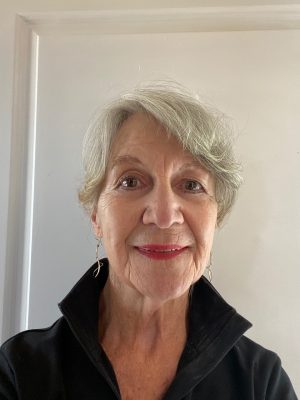 When I served in the Peace Corps in Ethiopia, during our summer break from teaching we traveled down to Kenya and then to South Africa. While I was there, I bought the beautiful classic book by Alan Paton, the South African writer—Cry, the Beloved Country. Deeply moving, it was written in the Apartheid era—–which we observed close at hand. All the businesses were owned and run by the whites and in the basements or by the back doors or in segregated transportation and neighborhoods, you observed brown and black faces. And how often in the past three years have I thought of the United States and murmured “Cry, the Beloved Country. ”
When I served in the Peace Corps in Ethiopia, during our summer break from teaching we traveled down to Kenya and then to South Africa. While I was there, I bought the beautiful classic book by Alan Paton, the South African writer—Cry, the Beloved Country. Deeply moving, it was written in the Apartheid era—–which we observed close at hand. All the businesses were owned and run by the whites and in the basements or by the back doors or in segregated transportation and neighborhoods, you observed brown and black faces. And how often in the past three years have I thought of the United States and murmured “Cry, the Beloved Country. ”
Our Pain and Fears
Here in this country, we have seen the increase in divisiveness—in the labeling of “the other” and the folding inward to a lonelier life. We have looked more closely at those things that divide us rather than those things that might unite us. And we are giving our youth a much different vision of our nation and community. The news most often features another tragedy—a mass shooting, another punitive law passed, a loss of employees to serve our schools, our hospitals, our public agencies. It seems unreal to look at these events and recognize the democracy I was raised to believe in.
Our Experience at Taos Behavioral Health
At Taos Behavioral Health (TBH) we have have been in the business of caring for the community’s behavioral health needs for 15 years. Times were often a real struggle—to survive economically, to receive referrals from the truly suffering, to develop relationships across the community that built strength. Yet never was it as dramatic and stressful as the last three years have been. During the COVID and political conflict of the past two years—our agency has doubled in size. We have seen a huge increase in trauma, in family violence, in youth homelessness, in broken homes, in school failures –and reduction in academic learning and in isolation and depression in our youth. Everywhere, there are not enough services to respond to the needs.
The National Scene
The mental health of US citizens has been declining for the past 30 years—but recent realities have increased that trend. A national CDC study in 2021 showed that one half of Americans reported symptoms of anxiety or depression. In the 18-25 year old group, almost 30% reported symptoms of depression. Since the onset of COVID, youth have reported an increase in anxiety, depression and substance abuse. Psychologists report the influence of social media on mental health—especially for youth. In addition to academic disruption, youth report anxiety about comparing themselves to on-line peers and the fear of missing out on news and friends planning activities. The National Institutes of Health research that shows the influence of social media becoming more powerful due to the number of smaller families and less communication and involvement in local community organizations and events. And in this country, May was designated as Mental Health month.
So What Can WE Do?
First of all—if you are a parent or friend or teacher of youth—give them the freedom to talk and LISTEN! What pains them the most? What dreams do they have of a different life? Do they know how you might help them? And as a neighbor or community member—support activities that give youth a chance to connect and heal—creative groups that support music, art, sports, writing, religion, recreation.
Give time and skills and money to organizations that are asking for volunteers. Encourage community discussions that support “cross talk” to learn about each other’s culture and life experiences. Help youth volunteer to make a difference for others—mentoring younger youth, cleaning community environments, working to improve trails or parks, visiting the elderly, etc.
Tell youth and their families—you belong to this community! We care about you—we want you to be connected to us all. All the people—means “all of us.” Make sure we reach out and say—we are here to live with you, to care about you, to care about what happens to our community. We are the beloved community. And we can make that real here—even if we can’t impact the whole country!
TBH has the largest staff of licensed and credentialed behavioral health professionals in northern New Mexico. Reach us at www/taosbehavioiralhealth.org or 575-758-4297 or for scheduled appointments at 105 Bertha in Taos.
Mary McPhail Gray is the board chair of TBH and can be reached at McPhailconsulting@gmail.com or 575-557-3126

